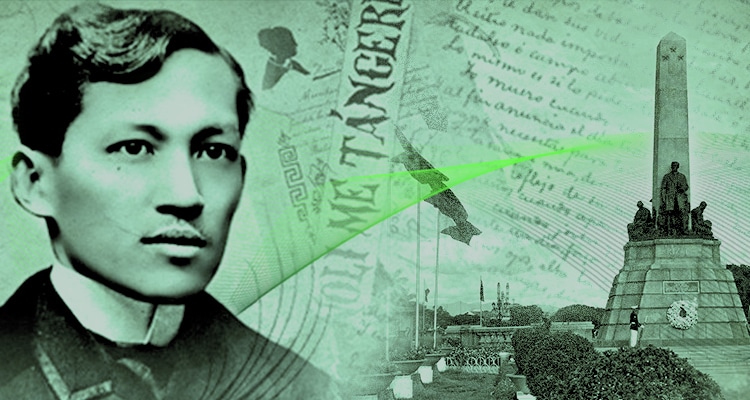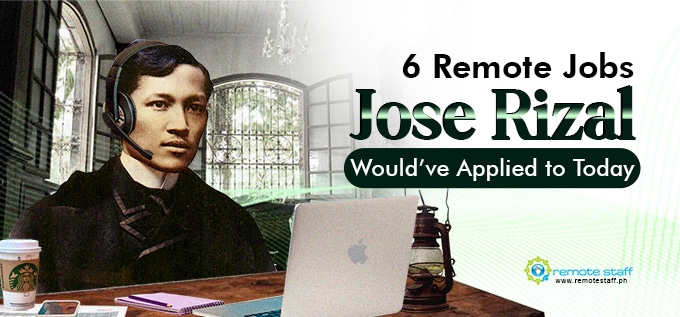Novelist, patriot, and hero. These are just some of the words we use to describe our country’s national hero, Dr. Jose Rizal. Rizal is famous for writing the Noli Me Tangere and El Filibusterismo. These novels helped open the eyes of Filipinos towards the abuses by the Spaniards in the Philippines, which helped lead to the Philippine Revolution on August 24, 1896.
Aside from being a writer, did you know that Rizal also excelled in many other fields of knowledge? That title of Doctor isn’t because he has a Ph.D. in literature, after all. Aside from operating his mother’s cataract, he also discovered a new species of frog, beetle, and lizard while on exile in Dapitan as well.
To highlight this lesser-known aspect of Dr. Jose Rizal, here are six online jobs that Rizal would’ve applied to if he is alive today. And if you’ve noticed that this article coincides with Rizal’s upcoming death anniversary, that is no coincidence. This article also serves as a commemoration of his contributions to the freedom we now enjoy.

Writer.
Let’s start with what many Filipinos associate Dr. Rizal with: which is being a writer, of course. This shouldn’t come as a surprise, what with the Noli and El Fili being required readings during High School. Aside from these novels, he also wrote poems and even a one-act play.
Unsurprisingly, these skills will make him an excellent content writer today. His social awareness and creativity ensure his works are timely and relatable. In addition to this, Rizal is also fluent in several foreign languages such as Spanish and French. This allows him to write to both local and international audiences.

Columnist.
Aside from writing his novels, he also wrote for the Filipino propagandist newspaper La Solidaridad. This newspaper spoke for more equality between Filipinos and Spaniards in the Philippines. Rizal wrote articles that defended Filipinos from racist Spanish works and promoted social reform.
If he were alive today, instead of writing against the Spanish, Rizal would’ve written about the various social injustices that plague the country. Issues such as poverty, the lack of easy access to education, and the inadequate healthcare infrastructure in the country, would’ve been his main topics.

Teacher.
Besides writing, another line of work that Rizal worked on is teaching. In his letters and works, Rizal stressed the importance of education in nation-building and the need to make it easily accessible to everyone. For example, one of the main plotlines of the Noli focuses on Ibarra, Rizal’s protagonist in the novel, building a school for his hometown.
Another reason why Rizal would consider teaching, either traditionally or online, is because we know he did teach children while in exile in Dapitan. He established his own school there, with its own curriculum and unique entrance exam. So it’s easy to imagine Rizal holding online classes for underprivileged schoolchildren today.

Vlogger.
Yes, really. Aside from being a patriot, Rizal was also an avid traveler. When he went to Spain to study medicine, he also visited France, Britain, and Germany. We also know that Rizal is quite photogenic, seeing that he has plenty of pictures throughout his life. We even have a photo of Rizal moments before his execution.
With these in mind, it wouldn’t be hard to see Rizal as a vlogger on social media, posting about his travels and activities abroad. He would also use his platform to promote awareness of social issues in the Philippines.

Ophthalmologist.
Of course, no discussion of Rizal’s work would be complete without mentioning his career as an ophthalmologist. The main reason why Rizal left the Philippines was that he wanted to cure his mother’s growing cataract. There, he studied under doctors Louis de Wecker and Otto Becker. These doctors were prominent ophthalmologists at the time.
Since physical contact is limited nowadays due to the pandemic, Rizal would have to do online consultations instead. He would primarily cater to those who need it most and those who can’t afford the service of other ophthalmologists. This is similar to how he established his clinic in Dapitan and treated the locals who needed medical attention there.

Engineer.
Aside from being an ophthalmologist, Dr. Jose Rizal was also an engineer. His aptitude for engineering can be best seen, once again, during his exile in Dapitan. While in exile, he built a dam and waterworks system in Dapitan. And you thought Rizal couldn’t get any more amazing.
How was Rizal able to accomplish building these structures, you may ask? While staying in Ateneo Municipal, Rizal actually obtained the title of expert surveyor (perito agrimensor). With this foundation, he read more engineering-related books to increase his knowledge.
In today’s context, the need for expert engineers remains high, despite the pandemic. Of course, Rizal would have to learn more and get a license before working on actual construction projects. But knowing him, if he does put more effort into learning engineering, he’ll be able to certify himself in no time.

Rizal Beyond the Hero.
Sometimes, it is difficult to see our heroes beyond their most-renowned achievements. Jose Rizal is an example of this. Yes, he inspired others to fight for our country’s independence. But he is more than just that. I hope this article shows just how brilliant our national hero was by showing his other skills in a present context.

